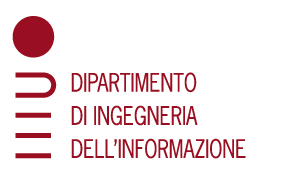The advent of multicore processors has shifted the burden of improving program execution speed from chip manufacturers to software developers. Experience has shown however that parallel programming is very difficult; therefore, there is an urgent need for new ideas in programming languages, compilers, and runtime systems.In this talk, we describe the Galois system, an object-based system that uses optimistic parallelization to speed up complex ``irregular'' applications (i.e., applications that manipulate large, pointer-based data structures such as graphs). Two such real-world applications are described in this paper: a Delaunay mesh refinement algorithm and a graphics application that performs agglomerative clustering. Between them, these two applications manipulate several of the more important irregular data structures including lists, graphs, priority queues and trees.There are three main aspects to the Galois system: (1) a small number of syntactic constructs for packaging optimistic parallelism as iteration over ordered and unordered sets, (2) assertions aboutmethods in class libraries, and (3) a runtime scheme for detecting and recovering from potentially unsafe accesses to shared memory made by an optimistic computation.We show that Delaunay mesh generation and agglomerative clustering can be parallelized in a straight-forward way using the Galois approach, and we present experimental results on two different multiprocessors to show that this approach is practical.This is joint work with Milind Kulkarni, Kavita Bala, Paul Chew,Ganesh Ramanarayan, and Bruce Walter.--------------------------------------------------------------------------Biography:Keshav Pingali is a professor in the Computer Science department at the University of Texas, Austin, where he holds the W.A.'Tex' Moncrief Chair of Grid and Distributed Computing. He received the B.Tech. degree in Electrical Engineering from IIT, Kanpur, India in 1978, and the S.M. E.E., and Sc.D. degrees from MIT in 1986. He was on the faculty of the Department of Computer Science at Cornell University from 1986 to 2006, where he held the India Chair of Computing.Pingali's research has focused on programming languages and compiler technology for program understanding, restructuring, andoptimization. His group is known for its contributions tomemory-hierarchy optimization; some of these have been patented.Algorithms and tools developed by his projects are used in manycommercial products such as Intel's IA-64 compiler, SGI's MIPSPro compiler, and HP's PA-RISC compiler. In his current research, he is investigating optimistic parallelization techniques for multicore processors, and language-based fault tolerance. Among other awards, Pingali has won the President's Gold Medal at I.I.T. Kanpur (1978), IBM Faculty Development Award (1986-88), NSF Presidential Young Investigator Award (1989-94), Ip-Lee Teaching Award of the College of Engineering at Cornell (1997), and the Russell teaching award of the College of Arts and Sciences at Cornell (1998). In 2000, he was a visiting professor at I.I.T., Kanpur where he held the Rama Rao Chaired Professorship.






